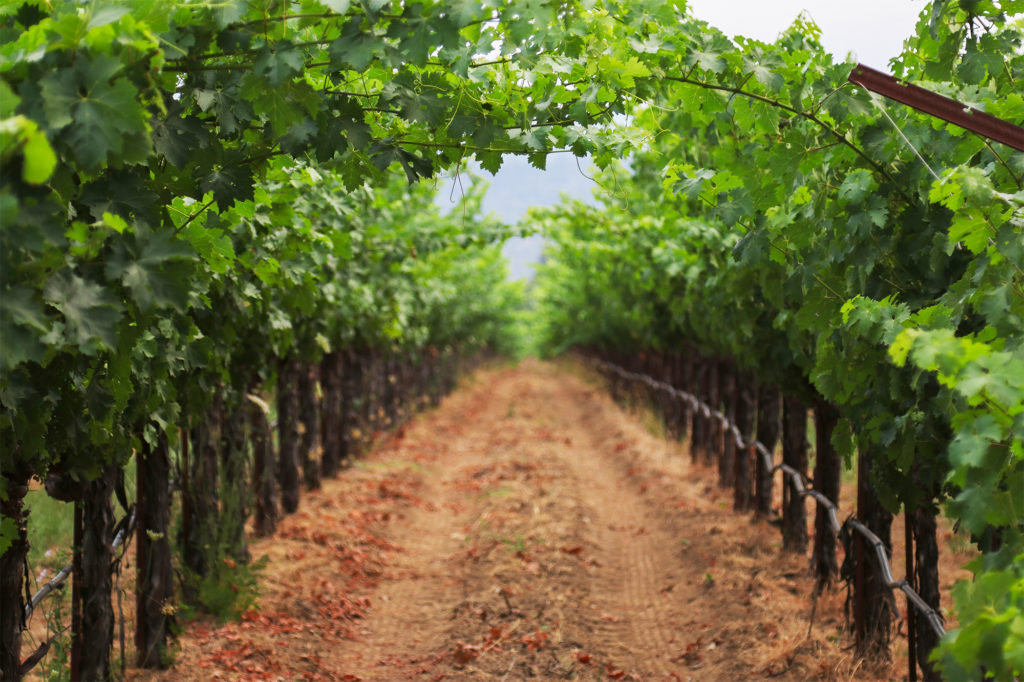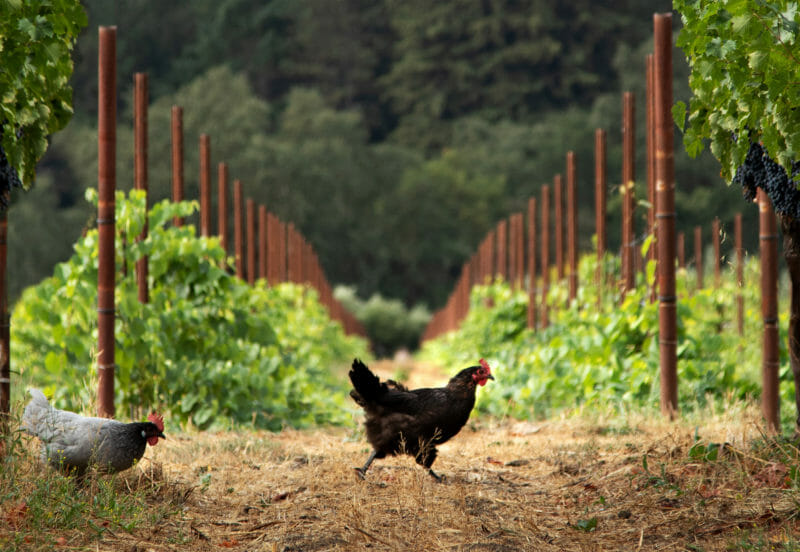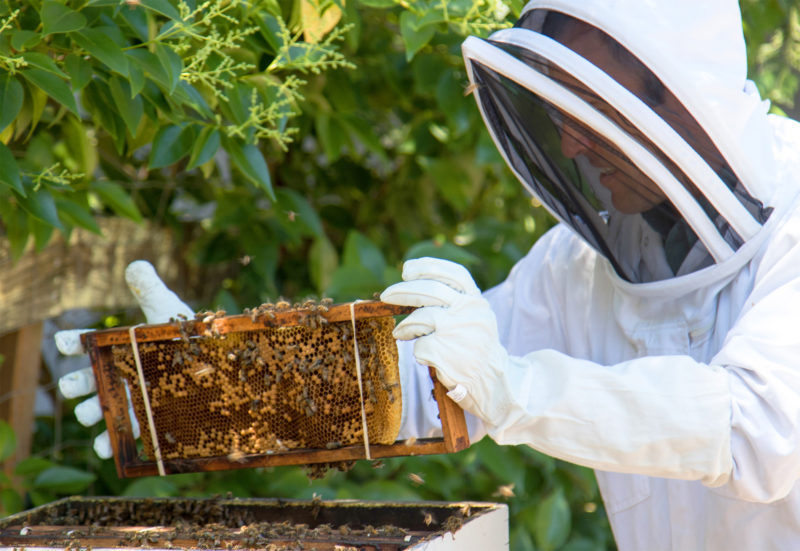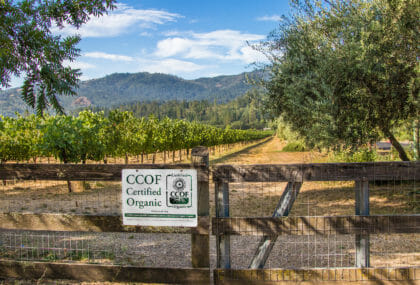
Certified Organic Vineyard
Spottswoode is among the first wineries to have adopted organics in the Napa Valley. We began farming our vineyard organically in 1985 and acquired California Certified Organic Farmers (CCOF) certification in 1992. Working closely with biodynamic specialists enables our farming to promote a living, breathing ecosystem.
Our commitment to producing the highest quality wines is evidenced by the amount of time we spend in the vineyard. We planted our youngest block in soil refreshed with the installation of tightly spaced sub-surface drainage, a system that drains spring rainwater to allow timely root growth in optimum conditions. We’ve also introduced a modified trellis system with tighter vine spacing. These efforts increase control over canopy growth and improve fruit conditions, resulting in more highly concentrated grapes. We also restored a riparian corridor that sustains an important ecological balance in our community.
The celebrated and organically farmed 46-acre Spottswoode estate sits on gently sloping benchland and has proven to be a Cabernet Sauvignon vine’s personal heaven.
Wine Spectator
Sustainable Soil Practices
Alluvial, clay loam soil is one of Spottswoode’s greatest assets. To enrich it, we plant cover crops such as vetch, peas, clover, and oats every fall. We have also reduced tillage and are re-establishing native California grasses in the vineyard, practices which feed the soil, encourage a healthy rhizosphere, and reduce the need for inputs. We also embrace biodynamic principles, including composting, bringing in animals, and incorporating the lunar calendar. We’re excited by the resulting success in diversity, rich soil, and abundance of earthworms.


Natural Insect and Weed Management
We maintain a variety of flowering plants along the vineyard border to provide habitats for beneficial bugs that prey on undesirable insects. We also built nesting boxes for native birds, including bluebirds, violet-green swallows, and owls that feast on insects and rodents and encourage diversity.
Controlling weeds organically requires patient innovation. We eschew the use of synthetic and organic herbicides, focusing instead on natural alternatives. In creating a sustainable, bio-diverse environment, we’ve learned to accept a landscape made imperfect by small, well-managed weeds.



Napa Green
As one of the first wineries to achieve both Napa Green Vineyard and Winery certifications, Spottswoode’s commitment to exceptional environmental stewardship goes beyond certifications and includes climate action, advocacy, organic, biodynamic and regenerative farming, as well as social equity, justice and inclusion.
Organic Estate Vineyard
One of the first wineries to have adopted organics, Spottswoode has farmed organically since 1985. Our vineyard earned California Certified Organic Farmers (CCOF) certification in 1992.
Biodynamic Farmers
Our biodynamic winegrowing practices focus on caring for our land as a single living organism, harnessing the power of the entire interconnected ecosystem to bring health and life to every corner of our Estate.

Championing the Environment
Our stewardship extends beyond Spottswoode:
